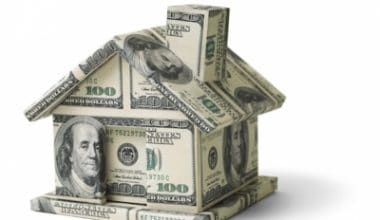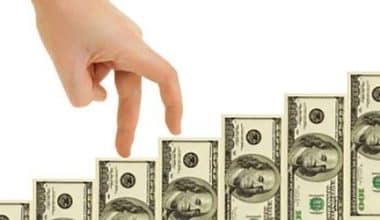A loan default occurs when you miss one or more payments on an account for an extended period of time.
If you have a loan that is in default or are concerned that you will, we can help you understand how a loan default can affect your finances—and what you can do to improve your situation. Let’s take a look at some of the most prevalent types of loan default situations, like student loan default, and discuss the consequences and how to avoid them.
What is Loan Default?
A loan default occurs when a borrower breaches the terms of his or her initial arrangement with a creditor or lender by ceasing payments.
“Defaulting on a loan means the borrower has not kept their half of the bargain with the creditor,” explains Leslie H. Tayne, debt settlement attorney and founder of Tayne Law Group in New York.
But what does a loan default mean to creditors? According to her, what causes a loan to default varies depending on the loan type and lender.
Many creditors, but not all, assume that if you do not pay within 180 days, you do not intend to pay, according to Tayne. Default is possible at this point, however, loan timelines vary.
How Loan Default Works
Defaulting on a loan will result in a significant and long-term decline in the debtor’s credit score, as well as exceptionally high-interest rates on any future loan. In the case of collateralized loans, defaulting will almost certainly result in the bank seizing the pledged asset. Mortgages, vehicle loans, and secured personal loans are the most common types of consumer loans backed by collateral. The severity of the consequences of a default for unsecured debts such as credit cards and student loans varies depending on the type of loan. Debt collection agencies can confiscate wages in extreme situations to pay back the outstanding debt.
| Loan Type | What Can Happen After Default? |
| Student Loan | Wage garnishment |
| Mortgage | Home foreclosure |
| Credit Card | A possible lawsuit and wage garnishment |
| Auto Loan | Car repossession |
| Secured Personal or Business Loan | Asset seizure |
| Unsecured Personal or Business Loan | Lawsuit and revenue or wage garnishment |
Student Loans
The first consequence of default on a federal student loan is “acceleration,” which means that the entire loan total is payable immediately. If this sum is not paid up, the government may withhold tax returns or other federal benefits received by the borrower. Debt collectors can also sue borrowers to get the right to seize their earnings, and debtors are frequently penalized with the collector’s court expenses following such a trial.
The consequences of a student loan, default like other debt commitments, will send a borrower’s credit score tumbling, which can take years to recover from. Student loan default, unlike other debts, remains on a borrower’s record for life, even if bankruptcy is filed. Furthermore, borrowers who default are ineligible to receive any further federal student aid or to seek loan deferment or forbearance, which can help struggling debtors.
The good news is that student loans have a considerable grace period before defaulting—270 days or around nine months. This enables proactive borrowers to get their finances in order and avoid defaulting entirely. For borrowers with a delinquent loan, keep in touch with your loan servicer and convey your financial condition to them, especially if you believe you will be unable to make your loan installments.
Credit Cards
While most credit card issuers allow for one late payment before penalizing cardholders, failing to pay repeated invoices can result in a 125-point drop in credit score. Furthermore, card providers might charge a late fee of $35 to $40, as well as a penalty interest rate, raising the cost of the existing debt significantly. When a credit card debt defaults, it initiates an aggressive debt collection process in which collection agents contact borrowers on a regular basis. While collectors may sue and win a wage garnishment, it is more probable that they will be ready to negotiate a partial debt reduction.
The average delinquent duration before a credit card debt fails is 6 months. While this period allows debtors enough time to sort out their affairs, it can also be a time when the debt, if unpaid, rapidly accrues interest. A personal loan to combine your outstanding debt is an excellent alternative for debtors trying to avoid this circumstance. These personal loans offer set monthly payments and, in general, cheaper interest rates than credit cards.
Mortgages
Mortgages are secured by the purchase of a home as collateral, which means that the home can be taken if the loan is not repaid in accordance with the original arrangement. For most homeowners, this means that missing a mortgage payment will result in foreclosure. While this is a severe effect, it is avoidable by figuring out how to refinance your mortgage to make it more affordable. Eligible homeowners should look into the Home Affordable Refinance Program, also known as HARP, which is meant to assist underwater borrowers.
Above all, making timely payments can help you avoid default. If you believe you will be unable to make your mortgage payment, it is critical to contact your loan servicer. If you’ve made on-time payments in the past and can demonstrate your current financial hardship, you may be able to negotiate a restructured loan agreement.
Automobile Loans
When an auto loan goes into default, the consequences are that the lender or car dealer can normally seize or confiscate the vehicle to pay off the outstanding amount. For most auto lenders, repossession is a last resort. Because the value of an automobile depreciates with time, the current value of a repossessed car is unlikely to be sufficient to cover the outstanding balance of a defaulted loan. Repossessed vehicles must also be resold in order for the lender to receive any cash—as a result, lenders prefer to receive funds directly from their borrowers rather than repossess the collateral. As a result, they are usually ready to negotiate with borrowers to restructure the conditions of a vehicle loan.
Other Types of Loans
The consequences of default on personal and commercial loans differ depending on whether the loan is secured or unsecured. If the loan was backed by a personal guarantee, defaulting on it can typically have a negative influence on the business owner’s credit score. Failure to repay a personal loan will also make it far more difficult to obtain credit in the future. However, as discussed in the preceding sections, these defaults can be avoided by contacting your lender and negotiating a modified loan.
- In the case of secured personal loans, default usually results in the lender seizing the collateral asset.
- In the case of secured business loans, default usually results in the lender confiscating revenue or inventory.
- For unsecured personal loans, default often results in wage garnishment.
- Lenders for unsecured business loans might sue to get a lien against a company’s earnings.
How to Avoid Loan Default
There are specific programs for student loans, such as loan consolidation and loan rehabilitation, to help student loan borrowers out of default. Rehabilitating a student loan allows borrowers to make monthly payments equal to 15% of their monthly income. Borrowers must initially make nine consecutive payments to qualify. The other federal program, loan consolidation, allows a borrower to get out of default by making three consecutive monthly payments at the full initial price and then enrolling in an income-driven repayment plan. Because student loans are not discharged in bankruptcy, these programs exist to allow lenders to recuperate their losses.
Other forms of debt are significantly more difficult to discover specific programs or loans geared to assist debtors in getting out of default. If possible, try to negotiate a repayment plan with your debt collector. However, depending on the magnitude of your defaulted loan and the severity of your debt, you may wish to consult with a bankruptcy attorney about your financial circumstances. If you have a lot of outstanding debt commitments, you may be able to benefit from the loan forgiveness afforded by declaring bankruptcy.
Can I Contest my Student Loans after Seven Years?
While you can challenge inaccurate information on your credit reports and have it deleted, negative marks based on outstanding student loans will remain on your records for at least seven years. Student loans are notoriously difficult to discharge in bankruptcy, and disputing them on credit reports will not help.
Your best bet is to make sure your payment is affordable and to pay what you owe, regardless of how long it takes. However, keep in mind that some student loan forgiveness programs can assist you in eliminating your debt sooner rather than later.
What Happens if I am Unable to Repay My Student Loans?
If you are currently unable to repay your student loans, you should consider federal deferral and forbearance. Both allow you to put your student loan payments on hold while you get back on your feet. While interest may continue to collect throughout this period, either sort of relief can buy you time.
While there are fewer choices for private student loans, consumers can contact their lenders for hardship relief and alternate repayment schedules.
Can You Go To Jail For Not Paying your Student Loans?
In general, you cannot go to jail for not repaying your student loans. However, your lender can and will likely sue you, your credit score may suffer, your income may be garnished, and you may end up owing a lot more in fees and interest in the long run.
How to Avoid Loan Default
Because loan default can have long-term consequences, it’s best to do everything you can to avoid it in the first place. Here are some pointers to consider:
#1. Consult with your lender.
Default isn’t just expensive for you, it’s expensive for lenders too. As a result, many lenders are ready to engage with troubled customers to assist them to avoid default. If you’re past due or afraid about skipping a payment, talk to your lender about modifying your payment plan.
#2. Inquire about deferment alternatives.
If you are suffering financial hardship, you may be eligible to request deferment or forbearance on your loan payments for various loan types, notably student loans. Deferment and forbearance can provide you with a temporary reprieve from your monthly payments while you attempt to get back on your feet financially.
#3. Take into account debt consolidation.
If your credit is in good standing, you may be able to consolidate your debt with a new loan, which will pay off the original debt and, ideally, eliminate the fear of default. This is the best option to consider if you are having trouble keeping up with several debt payments and have a plan in place to pay off the additional loan. Otherwise, you might just be postponing the inevitable.
You may be able to save your credit if you explore these and other measures to avoid the consequences of loan default.
How Do You Get Out of Default on a Loan?
In order to successfully complete debt rehabilitation, you are required to make nine consecutive on-time monthly payments, also known as payment credits. During the period of emergency relief provided by COVID-19, payments that have been suspended still count toward loan rehabilitation. Learn more about the COVID-19 relief that is available for loans that are currently in default.
Can Loans in Default Be Forgiven?
Loans with an existing default status are ineligible for forgiveness under any of our student loan programs. However, if you make use of the Fresh Start option, you will be removed from the default status. After that, you will recover the ability to apply for loan forgiveness programs, such as the Public Service Loan Forgiveness program.
Can You Ask a Lender to Remove a Default?
You will have the ability to request that this be removed from your account if you have already paid the amount that was claimed in the default, or if a default notification was sent to you by mistake. If you are not at least three to six months behind on your payments, you can also make a request to have it erased from your credit report.
Do Student Loans Go Away After 7 Years?
No. In contrast to other types of debt, the debt incurred from federal student loans cannot be eliminated through the filing of a bankruptcy claim. The borrower of a student loan carries that debt with them for the rest of their lives, or until it is repaid. If, on the other hand, the loans are refinanced as private loans and later default, it is possible that they will be eligible for discharge in the bankruptcy proceeding. If no action is done on the bill or the debt collector does not enquire about the late debt, a traditional debt that has been defaulted on will typically be removed from your credit report after seven years have passed.
What Happens When a Loan Goes Into Default?
When a loan goes into default, the responsibility of collecting the outstanding balance from you is transferred to a debt collection agency. Your credit score can take a significant hit if you default on a loan; this can also have an effect on your ability to obtain credit in the future and could even result in the lender seizing your personal property.
Conclusion
If you’re having trouble repaying a loan, we urge taking action as soon as possible. Here are some things you can do before your loan defaults.
- As soon as possible, contact your lender. Communication is essential. Your lender may be able to work with you to make your payments more manageable and avoid more serious financial issues in the future.
- Consult a credit counselor. A credit counselor could assist you in conducting financial analysis and providing you with financial education resources. The US Department of Justice website has a list of licensed credit counseling agencies organized by state and court district.
- Consider using a debt settlement firm to help you negotiate the repayment of your debt.
Loan Default FAQs
What happens if a loan goes into default?
When a loan goes into default, it is turned over to a debt collection agency, whose mission is to contact the borrower and collect the unpaid payments. Defaulting will significantly lower your credit score, affect your ability to obtain future credit, and may result in the confiscation of personal property.
Can a default be removed?
Once a default has been reported on your credit profile, it cannot be deleted before the six-year period is up (unless it was an error). However, there are various things that can be done to mitigate its detrimental influence, including repayment. Try to pay off your debts as quickly as feasible.
How long does it take to default on a personal loan?
Between 30 and 90 days
A personal loan in default indicates that payment is 30 to 90 days late. The precise timing is determined by the type of loan, the lender, and the terms of your loan agreement.
- JUNK BONDS: Definition & How To Invest In Junk Bonds
- HOW TO REFINANCE STUDENT LOAN: Step-By-Step Guide
- School Management Software: Top Picks In 2023
- Student Finance: A Complete How-to-Apply Guide
- STUDENT LOAN TAX DEDUCTION: How to Get the Student Loan Tax Deduction






